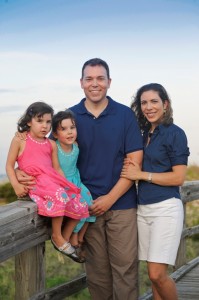Interview with Author Bruce Feiler
 JQ Magazine editor Justin Tedaldi (Kobe-shi CIR, 2001-02) spoke with JET alum and Learning to Bow author Bruce Feiler (Tochigi-ken, 1987-88), who will be appearing tonight at Barnes & Noble on the Upper East Side to promote his new book The Council of Dads. (Visit Examiner.com for complete details.) The full-length interview will appear in the next issue of JQ, out later this month.
JQ Magazine editor Justin Tedaldi (Kobe-shi CIR, 2001-02) spoke with JET alum and Learning to Bow author Bruce Feiler (Tochigi-ken, 1987-88), who will be appearing tonight at Barnes & Noble on the Upper East Side to promote his new book The Council of Dads. (Visit Examiner.com for complete details.) The full-length interview will appear in the next issue of JQ, out later this month.
What made you want to write Learning to Bow?
It kind of grew out of a series of letters I wrote home of the “you’re not gonna believe what happened to me” variety. And when I went back to Savannah six months later, everywhere I went, people said, “I just loved your letters,” and I said, “Have we met?” It turned out that my grandmother had copied them, and they got passed from person to person—they went viral in the 1980s, if that’s the word—and I thought, wow, if that’s interesting to me and to these other people, I should write a book about it. It really was the sense that this story from this point of view wasn’t being told. In the 1980s, you couldn’t pick up a newspaper without reading an article about Japan or education, and the fact that here was a book that combined both, but had some sense of humor, I just think it was the right book at the right time, and I’m amazed and touched that, so many years later, for a lot of people, it’s the first book they read when they go to Japan…This was before the Internet, before e-mail, before blogs. The world seemed much bigger than it is today.
Have you returned to Japan since your time there as a teacher?
That’s a really good question, and the answer is no. I’ve kind of been to every place around it, but I’ve never been back to Japan. I keep looking for the right assignment, because I really want to go back and kind of write something, but I haven’t been back.
What kind of outlook did you take back home with you from your time in Japan?
People go to Japan today and they call me up, which still happens from time to time. I say the same thing that I’ve said for decades now, which is: don’t go over to Japan trying to change it, thinking that you know better. Go there trying to understand. I think that that essential way of experiencing another culture is by not going in as a sort of a haughty Westerner, looking down on it, but actually jumping into the deep end, completely immersed in yourself, befriending the people, and opening yourself up to the culture. That way of living is the thing that I would take from my experience, and pass on to my daughters today.
Have you thought about writing another book about Japan?
Sure, I would like in my life to go back and revisit that. I mean, we’re coming up on 25 years since I was living and working in Tochigi, and I would love the opportunity to go back, walk those streets, seek out friends, maybe some of those students, and use that as a prism to talk about how Japan has changed in the last quarter-century. I think that would be a great privilege, and if anybody reading this wants to send me on assignment, I’m ready to accept.
What was your best and worst memory of Japan?
I’d say my best memory was climbing Mt. Fuji, and the worst memory was…trying to fit my feet into the free giveaway slippers at Japanese schools.
Yeah, those are tough.
[Laughs] I haven’t thought about that in a long time.


Comments are closed.